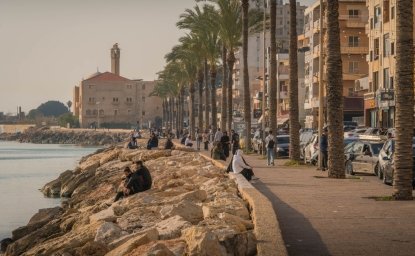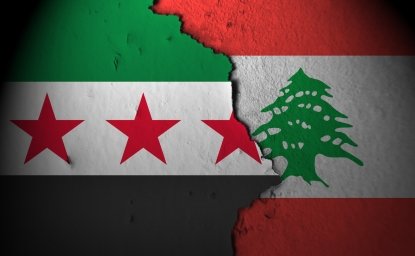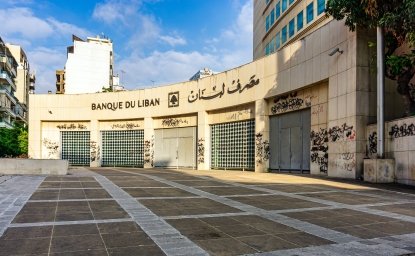Lebanon’s Presidential Election: The Elusive Search for Outside Influence and an End to Deadlock


After two and a half years of stalemate, during which the office of the presidency was vacant, Lebanon finally has a president. Michel Aoun, a Christian leader who inspires fierce loyalty in supporters and equally fierce enmity in opponents, was elected president on October 31. But beyond Lebanon, does it matter?
Lebanon has historically been affected by regional rivalries and struggles, and conventional wisdom has it that presidents are never “made in Lebanon.” Parliament convenes to elect a president only after a deal is struck by influential external powers.
There is a lot of truth to that idea. To varying degrees, presidential elections throughout Lebanon’s history bear the marks of France, Britain, Egypt, the United States, Israel, Syria, and Saudi Arabia. Today, the region remains as violently contested as ever, so it would seem the Lebanese presidency would again be decided by external powers. But appearances are often misleading.
In 1990, Michel Aoun, the commander of the Lebanese army and head of an interim military government appointed by an outgoing president, fled the presidential palace following his defeat by the Syrian army.
Thus ended the Lebanese civil war and began an era of uncontested Syrian rule over most of Lebanon, with American and Saudi nods of approval. Presidents, prime ministers, and the speaker of parliament would now be “made” primarily if not exclusively in Damascus.
Fast forward to 2005, when American support for Syrian rule had dissipated. Rafik Hariri, the former Prime Minister and pillar of the Syrian order who had fallen out with Damascus, was assassinated early that year, and his supporters poured into the streets with vengeful rage directed at Syria.
Even before the assassination, the George W. Bush administration, with troops next door in Iraq, had been pressing Syria to withdraw its army from Lebanon. Damascus yielded in April 2005, but the battle was only starting.
Hezbollah thrust its own popular base center stage, heralding the beginning of a standoff between two blocs; one largely Sunni with significant Christian and Druze support and the other largely Shi’a, each wielding a mass of supporters and calling them out to the streets at every turn.
The crowds were similar in size, but the anti-Syrian alliance was more diverse, giving the impression that it was the Shi’a on one side, and the rest of Lebanon on the other. Meanwhile there was a string of assassinations that targeted journalists and politicians opposed to the Syrian regime, compounding the tension.
It was to this scene that Aoun returned from his exile in Paris, in time for the first parliamentary elections under the new headless order that was beginning to form. He won a landslide in several Christian areas, and a few months later struck a deal with Hezbollah, effectively defecting from the anti-Syrian bloc and preventing Hezbollah’s isolation.
Hezbollah remained under sustained political attack in Lebanon, and in 2006, following a cross-border raid it conducted against Israel, came under an all-out military assault. All throughout the war and beyond, Aoun stood by Hezbollah.
This is why he is seen by some as the first president to have been made in Iran. But there are several gaps in this theory, and to explore them, we must take a closer look at some strange domestic dynamics that unfolded during the presidential vacuum.
While it is true that the contest for the presidency began as a contest between the two regionally aligned blocs, the ensuing stalemate resulted in maneuvers that can hardly be explained by the regional divide.
Late last year, Saad al Hariri, the leader of the anti-Hezbollah bloc, dropped his support for Samir Geagea, one of the most consistent critics of Iran and Hezbollah, and backed Suleiman Frangieh, an ally of Hezbollah and personal friend of Syrian President Bashar al-Assad. Not to be outdone, Geagea pulled out of the race and astonishingly nominated Aoun, his bitter enemy from the days of the civil war.
The two rival blocs were crumbling from within, and the remaining two candidates for the presidency—Aoun and Frangieh—were both allied to Hezbollah.
Yet the stalemate dragged on, and neither was elected until Hariri, who is Saudi Arabia’s main man in Lebanon, dropped support for Frangieh and decided he, too, would back Aoun.
In case your head is not already reeling, here is another mind-bender: the fiercest opposition Hariri faced after he had dropped support for one Hezbollah ally in favor of another came from the Speaker of Parliament Nabih Berri, a long-standing ally of Damascus, Hezbollah, and Tehran.
Some have suggested Hariri’s financial troubles put him under pressure to rescue his leadership by regaining office, which he could only do by backing Aoun. But why would Saudi Arabia allow him to concede to either Aoun or Frangieh, and why would Iran favor Aoun over Frangieh?
The closer we look, the deeper we sink into a web of domestic intrigue, blood-soaked rivalries, and delicate maneuvering in anticipation of the next power-sharing formula. As more detail comes into view, we are less likely to come out with a consistent explanation based on a theory of foreign intervention.
This is not to discount the possibilities of meddling by Iran, Saudi Arabia, France, the United States, or Britain. But such actions occur behind closed doors, and will probably remain hidden from view for some time to come. Furthermore, any conversations that may have taken place might just as well have consisted of Lebanese politicians begging for intervention and being brushed away by officials busy with bigger problems.
So instead of dwelling on what we cannot know, let us examine the bigger picture.
Iran’s interests in Lebanon are taken care of by Hezbollah, one of the Islamic Republic’s most successful investments. Hezbollah has not only fended off various threats from domestic rivals since it lost Syrian political cover in 2005, but it has also forcefully deterred these rivals from making serious threats in the future. Although Hezbollah would prefer a friend as president, and is probably happy that Aoun was elected, it is unlikely that it would have faced much trouble from the largely ceremonial office of the presidency.
More importantly, the battlefield has shifted away from Lebanon for the moment. Hezbollah’s decision to intervene in Syria’s war on the side of the regime has arguably provided regional foes with a more promising opportunity to wear them down. Measured against the scale of Syria’s civil war, any political advantage to be gained from the Lebanese presidency hardly matters to Hezbollah, much less to Iran.
As for Lebanon, the end of the “presidential vacuum” as it came to be known, is seen as the end of an era of institutional paralysis. On that count too, appearances can be misleading, and it is useful to remember that political dysfunction has often been on full display before the vacuum.
The sectarian power-sharing system otherwise known as consensual democracy has more often than not proven incapable of resolving the country’s problems.
With 1.2 million Syrian refugees sharing an already crumbling infrastructure with their host community, and an economy burdened by debt and further damaged by the civil war next door, the new government-in-the-making will have its hands full. Vital decisions are often delayed indefinitely in search of an elusive consensus that could become impossible if the goodwill generated by the election breaks down. President or no president, the potential for deadlock remains.
So if Lebanon’s presidential saga offers a lesson for the wider region, perhaps it is about the enduring troubles of a system based on institutionalized identity politics. Amid the ethnic and sectarian breakdown engulfing the neighborhood, it is a valuable reminder from the region’s pioneer in sectarian power-sharing and blood-letting.
The opinions expressed herein are those of the author and do not reflect those of the Wilson Center.
Author
BBC correspondent covering Syria

Middle East Program
The Wilson Center’s Middle East Program serves as a crucial resource for the policymaking community and beyond, providing analyses and research that helps inform US foreign policymaking, stimulates public debate, and expands knowledge about issues in the wider Middle East and North Africa (MENA) region. Read more

Explore More
Browse Insights & Analysis
Women are the Catalysts for Change in Lebanon

Lebanon’s Cultural Heritage: A Casualty of War with Israel

